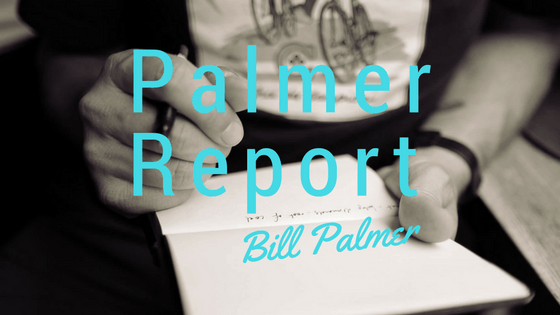No, Palmer Report is not “fake news” – and it’s time for competing news outlets to stop lying about us

It happened yet again today. Another major news outlet took a very public and very dishonest swing at Palmer Report, falsely accusing of us being “fake news” and worse. This time it was left-wing site The New Republic. Last time it was right-wing site Daily Caller. Last week it was left-wing site Vox. The week before that it was someone else. For us, it’s become a daily way of life. Even as we spend our time reporting on important political matters, and often scooping our larger and more bureaucratic competitors in the process, they’re increasingly obsessed with lying about us.
What’s remarkable about these increasingly desperate false attacks on us is that they’re all centered around the same absurd premise: if Palmer Report reports something before the larger and lazier news outlets get around to reporting it, then it must automatically be “fake news” no matter how true or well sourced it is. Nevermind that a day or a week or a month later, those same news outlets will finally report the same thing that Palmer Report already reported, while never giving us credit, and often falsely claiming that what they’re belatedly reporting is suddenly “breaking news” or an “exclusive.”
Because these patterns sometimes only become clear when spelled out, we’ve kept a running list of just some of the instances in which Palmer Report has beaten the larger news outlets to a story, then they’ve falsely attacked us in retaliation, and then we’ve ended up being fully vindicated (link). Some of them have ended up quietly retracting the dishonest attack pieces they’ve published about Palmer Report; none have ever publicly apologized for having lied about us. The more often we end up beating these larger news outlets, the more resentful and often deeply personal their editorial retaliation against us becomes.
While we were reporting on the Trump-Russia grand juries, our larger competitors desperately called us “fake news” at every turn – until of course they ended up reporting the same grand jury story weeks later. When a U.S. Senator used Palmer Report as a source on an important story, a dozen larger news outlets grew so resentful that they not only falsely attacked us for it, they falsely attacked the Senator for it (link). When a respected law professor and former U.S. intel community member shared Palmer Report articles online, those same resentful news outlets began attacking them for it as well.
This is, somewhat disturbingly, how the established political news outlets often respond when they can’t handle being routinely beaten and scooped by an upstart news outlet like Palmer Report. The increasingly infantile behavior emanating from these news outlets, some of which have upwards of a hundred employees, raises the question of whether they have any internal controls or standards at all.
If you’re a Palmer Report reader, you already know that we’re not “fake news” and that we pride ourselves on our accuracy and we’re often ahead of the curve. But the myriad of attack pieces published about Palmer Report over the past month, which have been consistently inaccurate to the point of being easily refuted fiction, are indeed fake news. It raises the question of whether these competing news outlets can be trusted on anything they report; if they’re willing to blatantly lie about us to try to gain a competitive advantage, they’re probably willing to lie in their day to day reporting as well.
